Keto! Ketones! Ketosis!... The ketogenic diet can be so confusing for beginners. This meal plan for the keto diet for beginners has breakfast ideas, lunch ideas, dinner recipes, healthy snacks and dessert recipes. Start losing weight, eating well and achieve your goals!
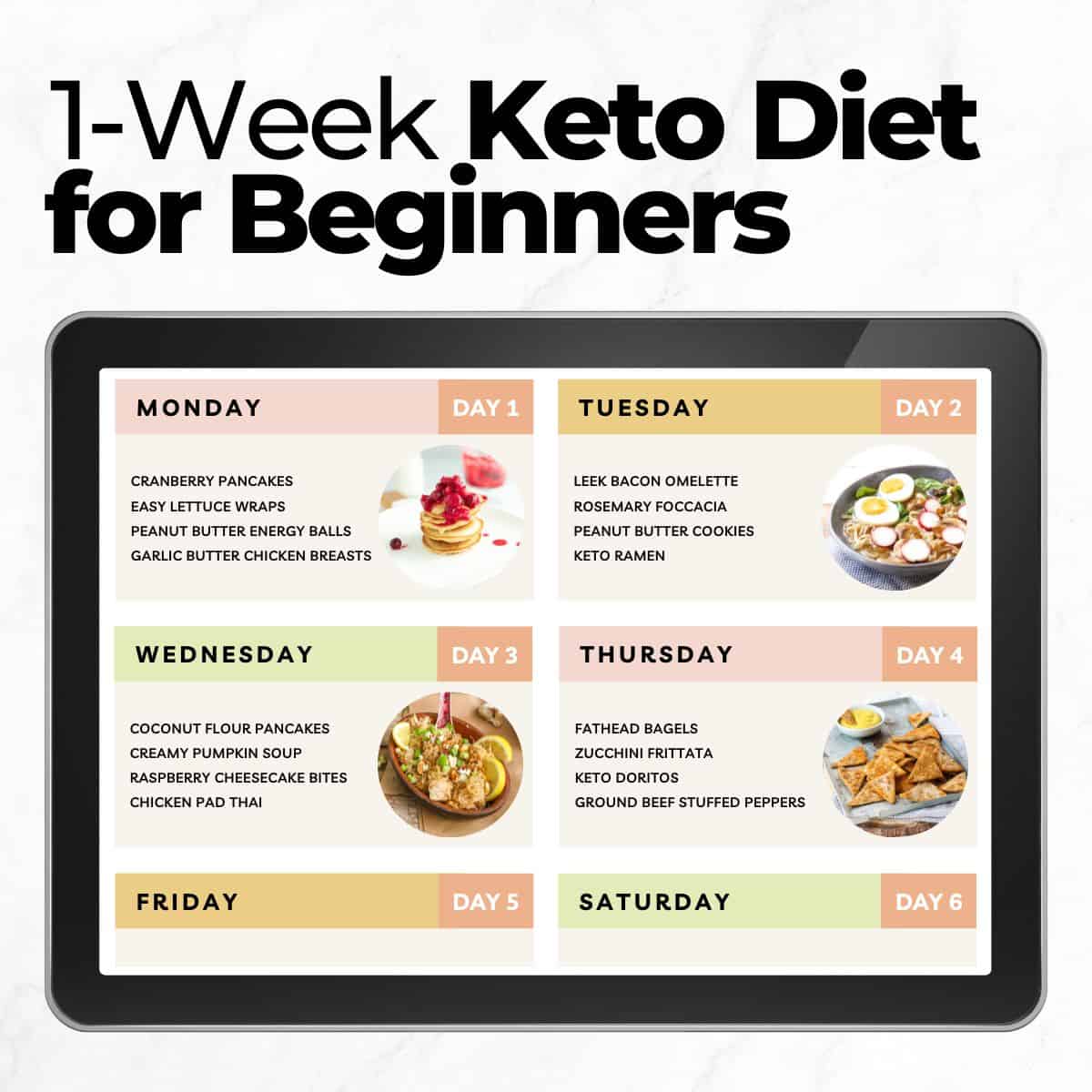
Jump to:
Starting A Ketogenic Diet
Preventing weight gain during this time of the year is one thing, but is it even possible to lose weight after over-indulging during the holiday season? Yes!
Lose weight and stay lean with our 7-day keto diet plan. Unlike many fad diets, the keto or ketogenic diet is more of a lifestyle. The diet does not set rules to starve yourself, eat a cup of vegetables, or drink some juice to lose weight.
It is not a taxing diet that will ask you to exert immense control and cut off all the food you like in exchange for fruits and vegetables. The keto diet does not require you to starve for days at a time, either.
Instead, the diet will help you understand how your food habits have turned bad over the years and what you can do to regain optimal health. You will learn that all your excess weight exists not only due to overeating and not exercising.
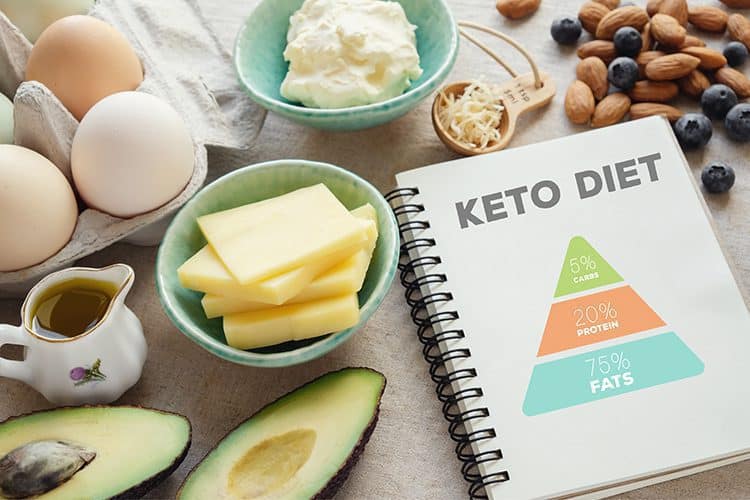
The Keyword: Ketosis
In the ketogenic diet, ketosis is the keyword. It is a metabolic process where your body uses stored fat instead of glucose for energy.
With this diet, you can easily lose weight by burning off stored fat. Ketosis is a natural state in the body that you induce by consuming more fats than carbohydrates.
Your body will always try to adapt to how you feed and treat it. When you consume more fats, it will automatically start using them for energy in the ketosis state.
Your liver will produce more ketones, and fat will be the main energy source instead of glucose. As the body requires more energy, it will utilize the fat stored around it. At this point, you will see a difference in the appearance of your body.

The Basics of Keto
When you start the keto diet, there are important points to keep in mind to effectively push your system into ketosis.
First, you must restrict your net carbohydrate intake to around 20 grams or less per day.
The diet is strictly low carb, or it won't work.
You don't need to cut out fiber since it is required for your body, but reducing carbs in your diet will make a huge difference and help you lose weight through ketosis.
You also have to control your protein intake and keep it moderate but higher than your carbohydrate intake.
Usually, you should consume around 0.5 to 1 gram of protein per pound of body weight daily.
So, if you weigh 150 pounds, you consume 75-150 grams of protein daily.
Keep the amount moderate since protein can also be converted to glucose by the body, which will hinder the process of ketosis.
The most important part of the keto diet is to include a lot of fat, as it will help you eat a full meal and stay satisfied until the next one.
Energy from a carb-loaded diet gets burned off easily, leading to hunger and binge eating.
Eating more fats will be a more sustainable way to check your eating habits and force your body into ketosis.
This will help you lose a lot of weight. Don't develop a habit of snacking too often.
Many keto snacks are available to suit your diet, but it is better to focus on the main meals and only snack a couple of times each day.
Eating unnecessarily and untimely is a bad habit that will slow down ketosis and make you gain weight.
Snacking is one of the worst habits of the modern-day diet and is caused due to the thousands of products easily available around us.
Don't buy a ton of snacks when you visit the supermarket because this will make it harder to resist at home.
Whether you are on a diet or not, it is important to stay hydrated all day.
When you first start the keto diet, drink more water than usual.
To burn off fat faster, add exercise to your daily routine.
Physical activity has many benefits to the body; it promotes longevity, helps prevent many diseases, and helps you stay fit.
After a while, try adding intermittent fasting to your routine. This effectively increases ketones in the body and accelerates the process of weight loss during ketosis.
Also, make sure you get sufficient sleep. A good night's sleep is crucial for the body to maintain good health.
Poor sleeping habits can lead to issues such as blood sugar imbalance, increased stress hormone secretion, etc.
Also, lack of sleep will leave you tired and unwell the following day.
Bad sleeping patterns also slow down ketosis and promote bad eating habits.
Midnight snacks might sound fun, but they are not a healthy choice, especially if you want to lose weight.
Suppose you are not an athlete or do not participate in extremely demanding sports. You generally do not need supplements during the ketogenic diet, as it is not recommended unless necessary.
It's better not to waste a ton of money on any products claiming to increase your weight loss rate. Just stick to the diet, and it will work for you.
Remember to consult your doctor to see if any underlying medical conditions may make the keto diet unsuitable.
Don't rush into any diet at the risk of your health. Different things might work for different people.
If they give you the green light, you can start the keto diet and lose weight as soon as possible!
How Carbs Affect Your Weight
Question: Name a food that tastes "oooh so good" but is bad for you. Do donuts come to mind? A bag of potato chips? A greasy slice of pizza? What about a Snickers bar? Wherever your food pleasure lies, chances are that it is steeped in sugary carbs.
According to Harvard, the average American adult, child, and teenager consumes 17 teaspoons of sugar each day. That's almost 54 pounds of sugar per year! Back in the early 1800s, the average American sugar intake was only 4 to 6 pounds per year. Man, how times have changed.
With all being said, how do carbs affect your body weight? The answer to that is... water weight. You can thank glycogen for this. Glycogen is a form of glucose stored in the liver and muscle tissues, and the primary dietary source of glucose is carbohydrates. Medical science shows that every 1 gram of glycogen carries 3 to 4 grams of water. Research has proven that a high-carb intake increases glycogen levels while a low-carb intake reduces it. So, If you take into account that the average man can store up to 15 grams of glycogen per kg of body weight, that's enough to make a huge impact on the weight scale, particularly if he consumes a copious amount of carbs.
Wait, so body fat is not a factor?
Yes, body fat is definitely a factor. In fact, ever since people started consuming more carbs (sugar), the U.S. obesity rate has risen. The number of U.S. citizens who are categorized as obese has nearly doubled over the past 30 years. Do you see the correlation now between body fat and carbs? If not, there is one more piece of information I would like to share.
In addition to being stored in the liver and muscle tissues, glycogen is stored in fat cells. This is the same glycogen that holds 3 to 4 grams of water. By lowering carb intake, you deplete your regular stores of glycogen, which shows as weight loss on a scale. This is the reason an obese person who follows a low-carb diet will always lose more weight versus a slimmer person; they carry more fat cells (each containing water-holding glycogen). So, if an obese individual decides to follow the ketogenic diet, they are bound to drop a substantial amount of weight.
However, there's much more than the low-carb part of the diet which makes weight loss a reality. Let's look at some of the benefits of a ketogenic diet below.
The Power of Keto
- Keto Helps You Lose Weight
Numerous studies have touted the weight loss benefits of a low-carb diet. The keto diet enhances this benefit. How so? The low carb intake makes your body produce ketones in the liver to be used as energy (called ketosis), a byproduct of burning body fat. Reducing carbs allows the body to use glycogen buildup within your fat stores as fuel, resulting in weight loss. This effect is doubled when you burn glycogen by exercise.
Let me say this about weight loss...
When people say they want to lose weight, they typically mean they desire to lose body fat. However, you could lose weight by losing muscle mass and water weight as well. Most diets have you losing all three. In case you didn't know, losing muscle mass is rarely a good thing. Unlike high-carb diets, keto burns body fat along with the water weight within it. When in a state of ketosis, the body begins to utilize fat for fuel. In addition, moderate protein intake protects your muscle tissue from being used as fuel (a process called Gluconeogenesis). How sweet is that!
While the ketogenic diet is a superb weight loss tool, that's not the biggest health benefit it elicits.
- Keto Helps Lower Risk of Developing Chronic Diseases by Improving Cholesterol
What do type-2 diabetes, stroke, and heart disease have in common? They are all chronic diseases that the keto diet can help prevent. One study conducted on an obese individual who followed the ketogenic diet for 24 weeks resulted in significant risk 2 reductions in chronic diseases by weight loss, decreased levels of triglycerides, LDL cholesterol (the bad cholesterol), and blood glucose, and increased levels of HDL cholesterol (the good cholesterol).
Being that heart disease, diabetes, and stroke are three of the leading causes of death in the world, it is phenomenal to have a diet combat them. Keto eliminates processed, refined carbs that have been linked to several diseases, including obesity, heart disease, and type II diabetes. In fact, the development of type-II diabetes is strongly attributed to continuously eating high glycemic foods (e.g., whole grains, bran, germ) that spike your blood sugars. Another chronic disease that correlates with those other three is high blood pressure.
- Keto Lowers Blood Pressure
High blood pressure (HBP) is one of those diseases that gets swept under the rug in terms of how lethal it is for a person's health. That's why it has been dubbed the "the silent killer." If left untreated, high blood pressure can lead to:
- Stroke
- Heart disease
- Peripheral artery disease
- Erectile dysfunction
- Kidney damage
- Angina
- Fluid in the lung
- Vision loss
- Memory loss
Be aware that these aren't symptoms of high blood pressure. High blood pressure is a symptomless disease for most people, except in most rare cases, known as hypertensive crisis. If you or your family
have a history of high blood pressure, following a low-carb diet may be a godsend. Medical researchers tout low-carb diets like keto as an effective method to reduce blood pressure. If you take high blood pressure medication, please consult with your doctor first before trying this diet out.
One way that people develop high blood pressure is by eating too many refined carbs over a lengthy period of time. The reason most people consume so many refined carbs is due to how poorly they satisfy their appetite.
- Keto Prevents Binge Eating
The number one reason most diets fail long-term is because they leave people hungry as heck! They allow the consumption of low-satiety foods such as white potatoes, rice, and bread. Eating these foods eventually leads people to unfollow their diet and eat every calorie under the sun (aka binge eating). That's not the case with the ketogenic diet. Research illustrates that a high-protein, low-carb diet reduces hunger and lowers food intake. In addition, the amount of dietary fat you'll consume will leave you very satiated.
Another problem about most other diets is they're energy zappers. That's not the case when you go "keto."
- Keto Boosts Energy Levels by Boosting Brain Power
Who doesn't need more energy in this hustle and bustle world? Following a ketogenic diet helps many individuals gain more energy to perform their day-to-day activities. The main reason for this is that ketones replace glucose as the brain's fueling source. When
carbs are eliminated or minimized; ketones provide up to 70% of the brain's energy needs; this boosts mental focus and alertness throughout the day.
Another interesting fact is that ketones keep people who go through prolonged periods of starvation (e.g., coma patients) alive. Then again, it makes sense, considering that intermittent fasting works well in conjunction with the keto diet.
Intermittent Fasting and the Keto Diet
The main reason you are reading this article is because you're interested in losing weight; that's understandable. With that said, using intermittent fasting (IF) along with the keto diet maximizes weight loss. IF is a term for an eating pattern that cycles between periods of fasting and eating. Like the keto diet, several studies have shown IF to be an effective weight loss method as well as reducing the onset of chronic diseases such as type II diabetes. That's why it makes sense to use IF in conjunction with the ketogenic diet.
These are the 3 most popular IF methods:
- Eat-Stop-Eat: This involves fasting for 24 hours once or twice a week.
- The 16/8 Method: This method involves skipping breakfast and restricting your daily eating period to 8 hours, for example, from 12 pm to 8 pm; afterward, you "fast" for 16 hours in between.
- The 5:2 Diet: On two non-consecutive days of the week, only eat 500-600 calories. You eat normally for the remaining 5 days.
Of these three methods, elements of the 16/8 Method work best with the keto diet. At the end of this article, you will see a 7-day keto diet meal plan. You can use this meal plan with intermittent fasting by eating your meals on a 16/8 schedule.
For example, eat your first meal at 11 am, second meal at 3 pm, last meal at 7 pm, and snacks somewhere in between. By combining IF with keto, you will:
- Burn more body fat
- Have more energy as you start your day
- Reduce chronic inflammation
- Improve brain function
- Thoroughly cleanse toxins from body cells
Utilizing IF and keto together helps you lose unwanted inches off your waist. Like a Friday the 13th movie, there are several versions of the keto diet. Here are the four most popular ones.
Different Types of Ketogenic Diets
- Targeted ketogenic diet (TKD): This version is where you can consume carbs during a workout.
- Standard ketogenic diet (SKD): This version focuses on a high-fat, moderate-protein, low-carb diet. It typically contains 75% fat, 20% protein, and only 5% carbs.
- Cyclical ketogenic diet (CKD): This version involves periods of higher-carb refeeds, such as 5 ketogenic days followed by 2 high-carb days.
- High-protein ketogenic diet: This version is similar to a standard ketogenic diet but includes more protein. The ratio is often 60% fat, 35% protein, and 5% carbs.
While embarking on this keto diet journey, below are the foods that you need to ignore, like a spam phone call.
Foods To Avoid on Keto
- White potatoes
- Alcohol
- Bread, pasta, tortillas, and other foods that contain gluten.
- Condiments such as ketchup, soy sauce, and barbecue sauce contain sugar, artificial ingredients, excessive salt, or gluten.
- Corn (including popcorn, cornbread, and popped corn chips).
- Foods that contain high-fructose corn syrup or trans (hydrogenated) fats.
- Foods that contain sugar, artificial sweeteners, or soy.
- Fruit juice (even 100% fresh!).
- Grain-based foods (e.g., wheat, barley, rye, cereal, oatmeal).
- Jams, jellies, pancake syrup.
- High-sugar dairy products (e.g., ice cream).
- Salty processed snacks (potato chips, popcorn, pretzels, nacho chips, crackers, popcorn).
- Sugary processed snacks (cakes, cookies, cupcakes, candy).
- Sweetened drinks such as fruit punch, lemonade, and soda.
Foods To Eat on Keto
Now that you know what foods to avoid, here are the foods (along with snacks and supplements) that you can enjoy.
Meat, Poultry, and Fish
Note: If possible, choose meats and poultry that are organic, grass-fed, free-range, hormone-free, and antibiotic-free.
- Beef
- Bison
- Herring
- Veal
- Eggs
- Lamb
- Mackerel
- Chicken
- Turkey
- Tuna
- Shellfish such as crawfish, shrimp, and lobster.
- Coldwater fish such as wild salmon and tilapia.
- Pork products such as ham, bacon, and sausage (Note: eat in moderation).
Vegetables
Choose fresh, organic vegetables such as:
- Artichokes
- Asparagus
- Avocados
- Bean sprouts
- Bell peppers
- Bok choy
- Broccoli
- Brussels sprouts
- Cabbage
- Cauliflower
- Celery
- Chard
- Cucumbers
- Green beans
- Kale
- Mushrooms
- Onions
- Romaine lettuce
- Spinach
- Squash
- Sweet potatoes
- Tomatoes
- Watercress
- Zucchini
Other Food Items
- Condiments for dipping (hummus, guacamole, salsa)
- Healthy oils (e.g., avocado oil, olive oil, coconut oil, etc.)
- Milk Alternatives (e.g., almond, coconut, hemp, rice, etc.)
- Nut butters and spreads (almond butter, peanut butter, and coconut butter).
- Protein Powder
- Raw, unsalted seeds and nuts.
- Seeds (chia, flax, hemp)
- Small amounts of fresh and frozen fruit. (e.g., strawberries, blueberries, raspberries, blackberries)
- Sugar-free sweeteners such as stevia, monk fruit, allulose, and Erythritol
Herbs and Spices
Choose fresh, organic vegetables such as:
- Basil leaves
- Black Pepper
- Cayenne Pepper
- Chili powder
- Cilantro
- Cinnamon
- Cloves
- Coriander
- Curry
- Dill
- Garlic
- Ginger
- Marjoram
- Mint
- Oregano
- Nutmeg
- Parsley
- Rosemary
- Saffron
- Sage
- Thyme
Supplements
- Fish oil
- Magnesium
- Probiotics
- Calcium
- Iron
- Vitamin D
- Vitamin C
- Potassium
- Multivitamin (Note: probably the best supplement since most multivitamin products have about all the essential nutrients and vitamins)
- Protein powder
- Electrolyte powder (sugar-free)
Frequently Asked Questions
What is ketosis?
Ketosis is a natural process the body initiates to help us survive when food intake is low, particularly of carbohydrates. During this process, we produce ketones, which are produced from the breakdown of fats in the liver.
How long does it take to reach optimal ketosis?
Warning: The keto diet takes time for your body to get adjusted to it. With that said, reaching optimal ketosis could about 3-7 days, depending on your body type, activity levels, and what you're eating. However, how strict you are with your carb intake leads your body to reach ketosis faster.
Do I need to count calories?
While calories do matter-especially with weight loss---you don't really have to count calories while starting a keto diet because the protein and fat will keep you satisfied.
Can I drink alcohol?
Alcohol can be consumed, but be cognizant of how much and what type you're drinking. Wine, beer, and cocktails all have carbohydrates in them. While it is best to avoid alcohol altogether while starting out, there are a number of keto-approved alcohols. Check out our keto guide to alcohol for a full list of keto-friendly alcohols. We also have a range of keto cocktails you can make at home.
Can I eat too much fat?
Technically, yes, you can eat too much fat and gain weight. However, most people will find it difficult to overeat on a high-fat, high-protein, low-carb diet. To ensure you don't overeat, use our keto calculator to calculate your personal nutritional requirements based on your goals.
What foods can I eat?
In a nutshell, stay away from high-carb, sugary foods and condiments. Check out our keto food list for beginners for a complete list of foods to eat and foods to avoid.
How can I track my carb intake?
Following the keto diet will naturally have your carb intake low. However, there are smartphone health apps such as MyFitnessPal that make it easy to track your carb intake.
How much weight will I lose?
How much weight you lose depends on several factors (e.g., genetics, gender, current health level, etc.). Of course, exercising and living a more active lifestyle -- in conjunction with the keto diet -- will help you lose weight faster.
What are the common mistakes people make when doing the keto diet?
The three most common mistakes people make are:
1. Consuming too much protein
2. Mistaking any low-carb diet for very low-ketogenic dieting
3. Not allowing for a long enough adaptation period
What are the potential dangers and side effects of keto, and how to solve them?
When your body is suddenly exposed to a new way of eating, side effects are a likely occurrence. With that said, the keto diet does have its side effects, but they're curable.
Headaches: Drink water with salt sprinkled in it.
Feeling tired and cranky: Eat more fat.
Leg cramps: Drink water with salt & supplement with magnesium.
Constipation: Drink more water, add extra salt to foods, and eat more high-fiber, non-starchy vegetables.
Bad breath: Brush your teeth and tongue more often/Eat a few more carbs if the smell becomes a long-term issue.
Reduced exercise performance: Drink plenty of water with salt prior to exercising. Be patient because it will take time for your body to adjust from being a sugar-burner to burning primarily fat for energy, even in the muscles.
Final Thoughts
While there are other effective diets out there, the ketogenic diet is one that should have you losing inches faster than Usain Bolt.
Have you tried the ketogenic diet? If not, are you thinking about trying it? Below is a complete 7-day meal plan to get you started. Which type of keto diet will you choose, and did you enjoy the recipes? Please share your experiences and/or leave a comment below! I can't wait to hear from you.
7-Day Keto Meal Plan PDF
BURN UP to 20 pounds
The Ultimate Keto Kickstart Bundle is your all-in-one digital guide for mastering the ketogenic lifestyle. This 59-page printable PDF provides essential resources, practical tools, and delicious meal plans designed for both beginners and experienced keto followers. Whether you're just starting your low-carb journey or looking to refine your approach, this bundle offers comprehensive guidance, meal ideas, and strategies to help you achieve your health and weight loss goals.
Each day includes recipes for breakfast, lunch, snacks, and dinner. Feel free to mix and match your favorite recipes if you prefer certain ones over others.
Also, it would be best if you used our keto calorie calculator to calculate your daily calorie intake requirements.
This will help you decide how many portions of each meal you need to eat and whether or not you need to add more snacks.
Check out the recipes listed for Monday to Sunday, or get the printable meal plan in PDF format with all the recipes sent straight to your email by filling out the details below.
Health Disclaimer: A ketogenic or keto diet has many proven benefits, but it is still controversial. Any information we provide is for your personal use and for educational purposes only. Always consult with your doctor before beginning any diet or nutrition routine, especially if you are pregnant or have any pre-existing health conditions. Nothing contained on this website should be considered medical advice.

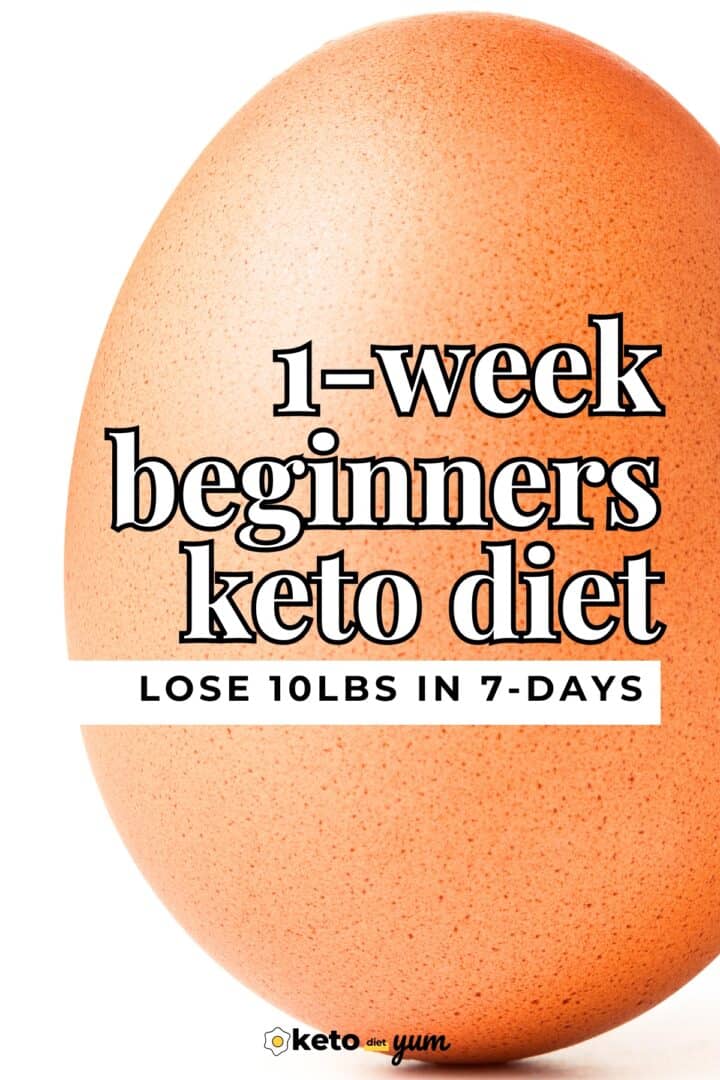
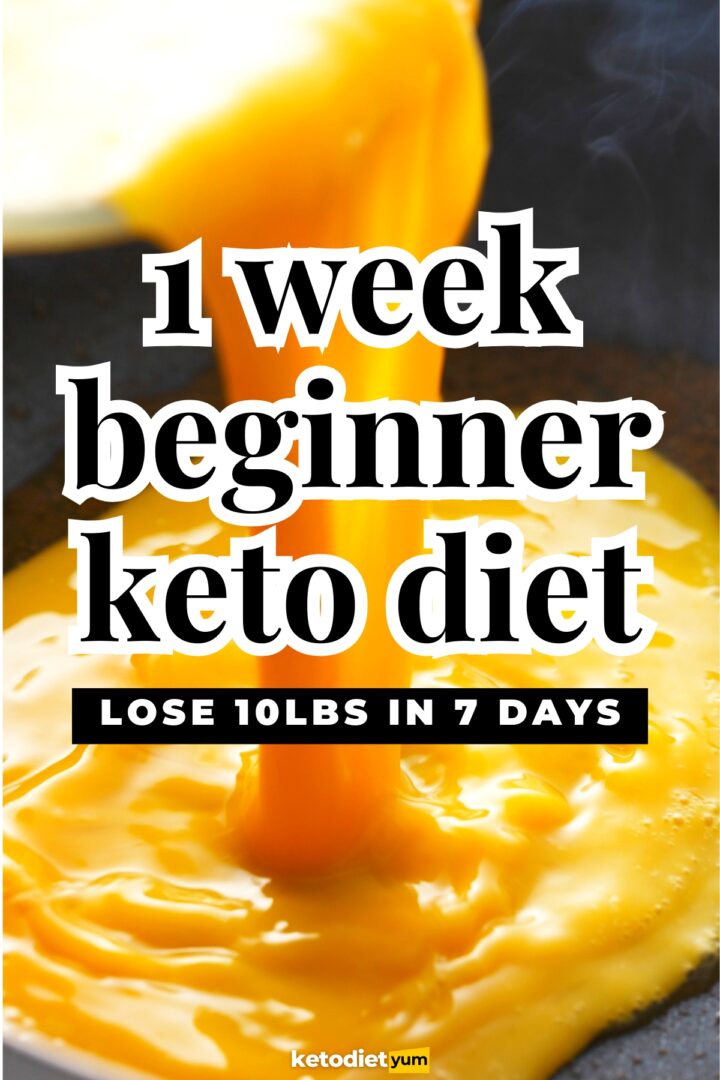
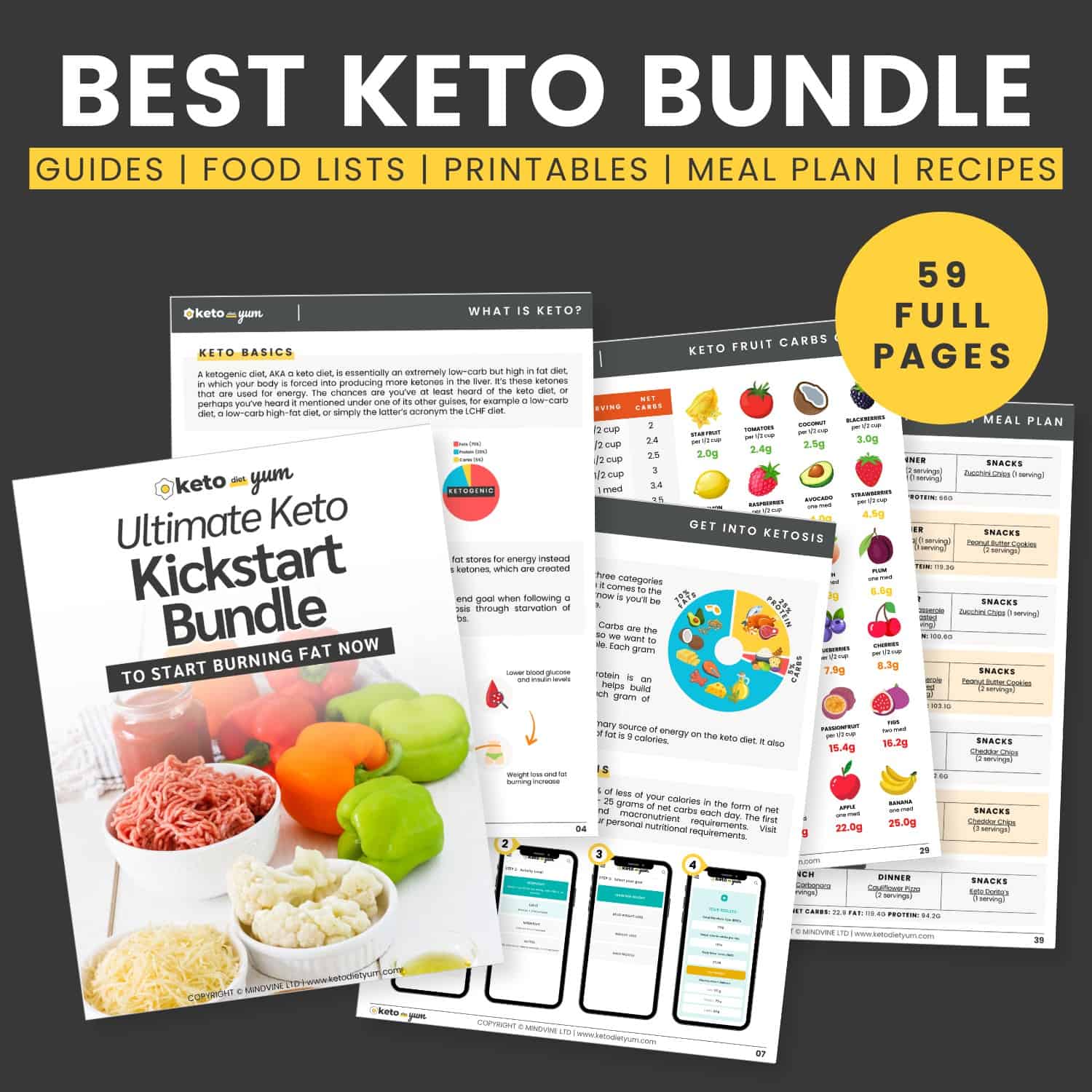

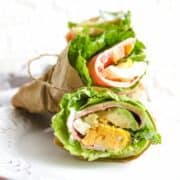



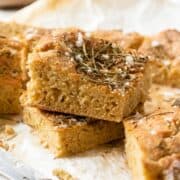











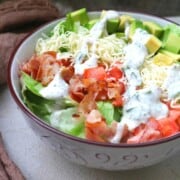
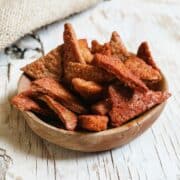
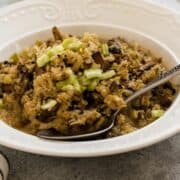

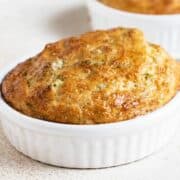
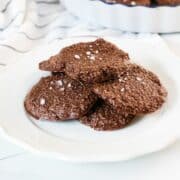
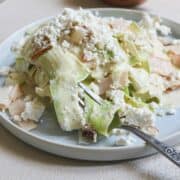

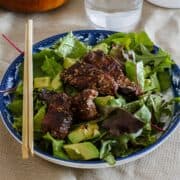
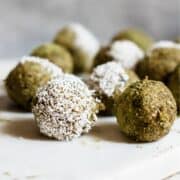

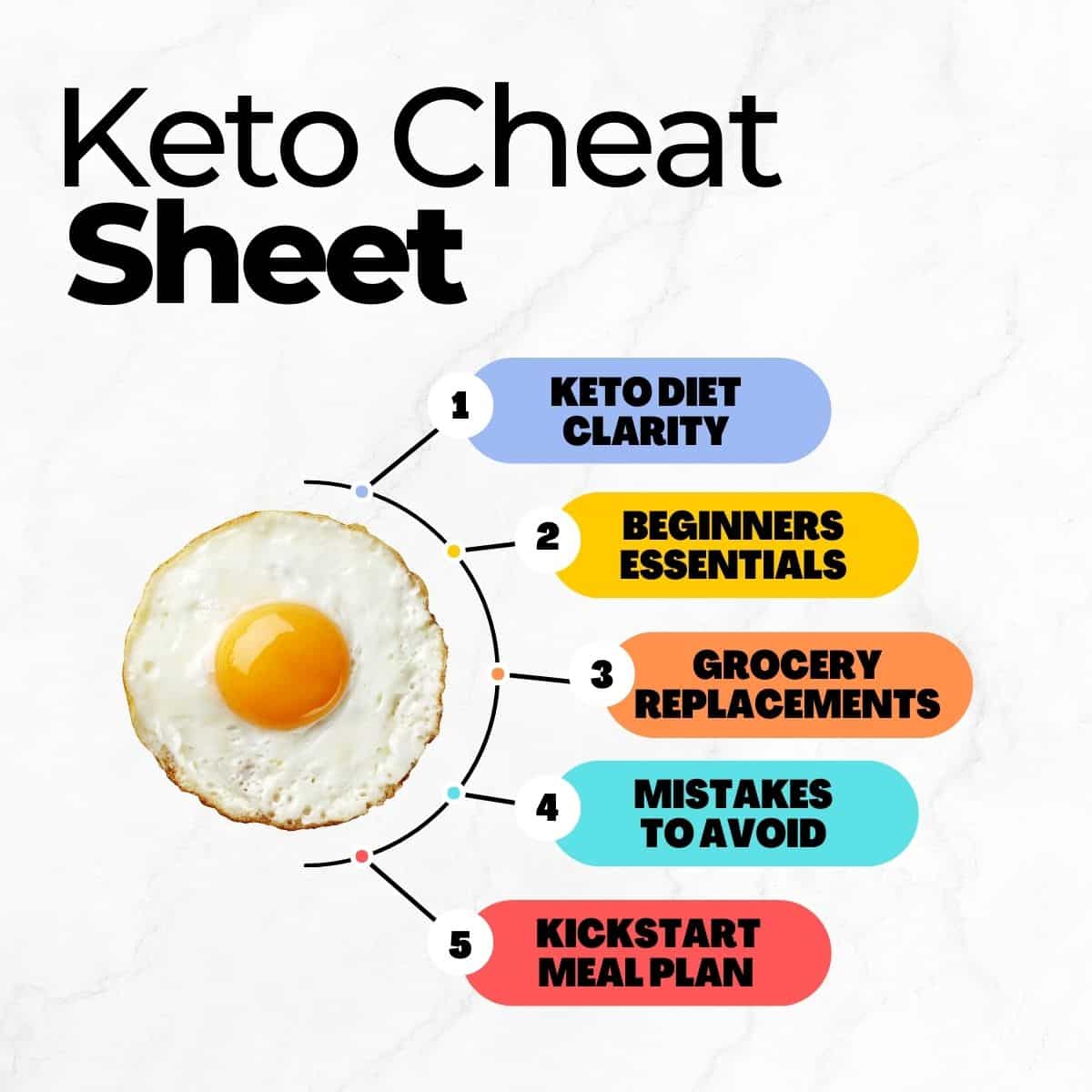
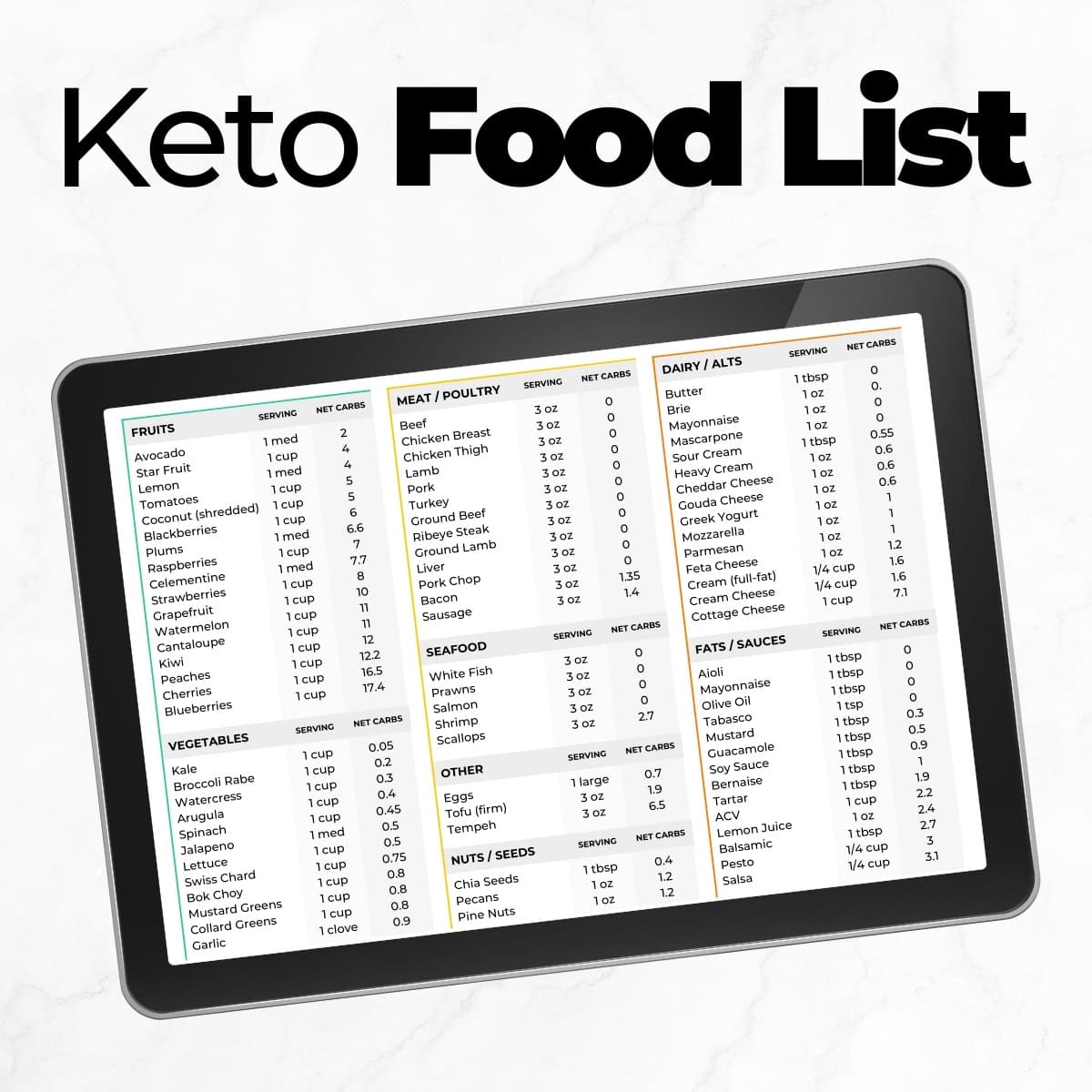
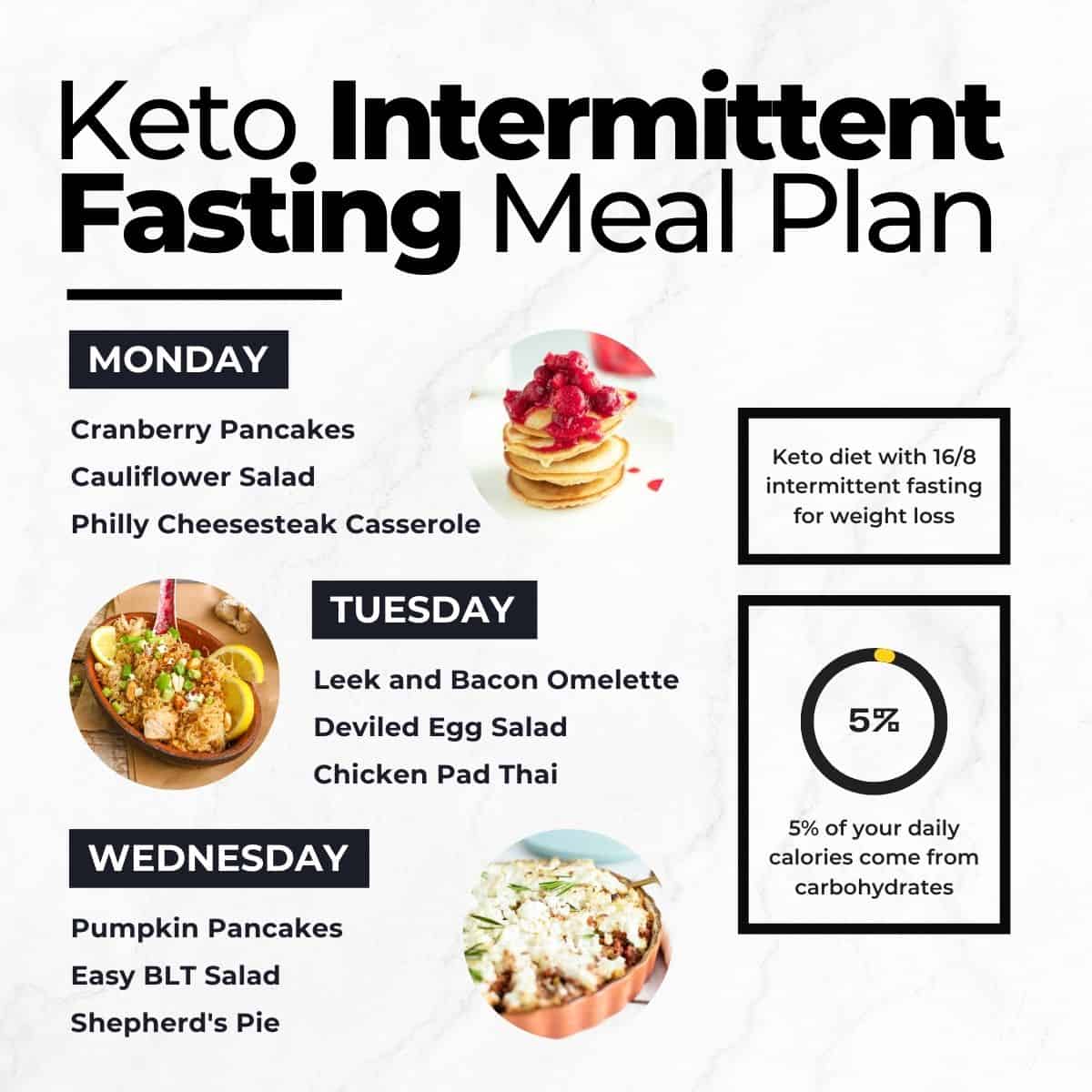
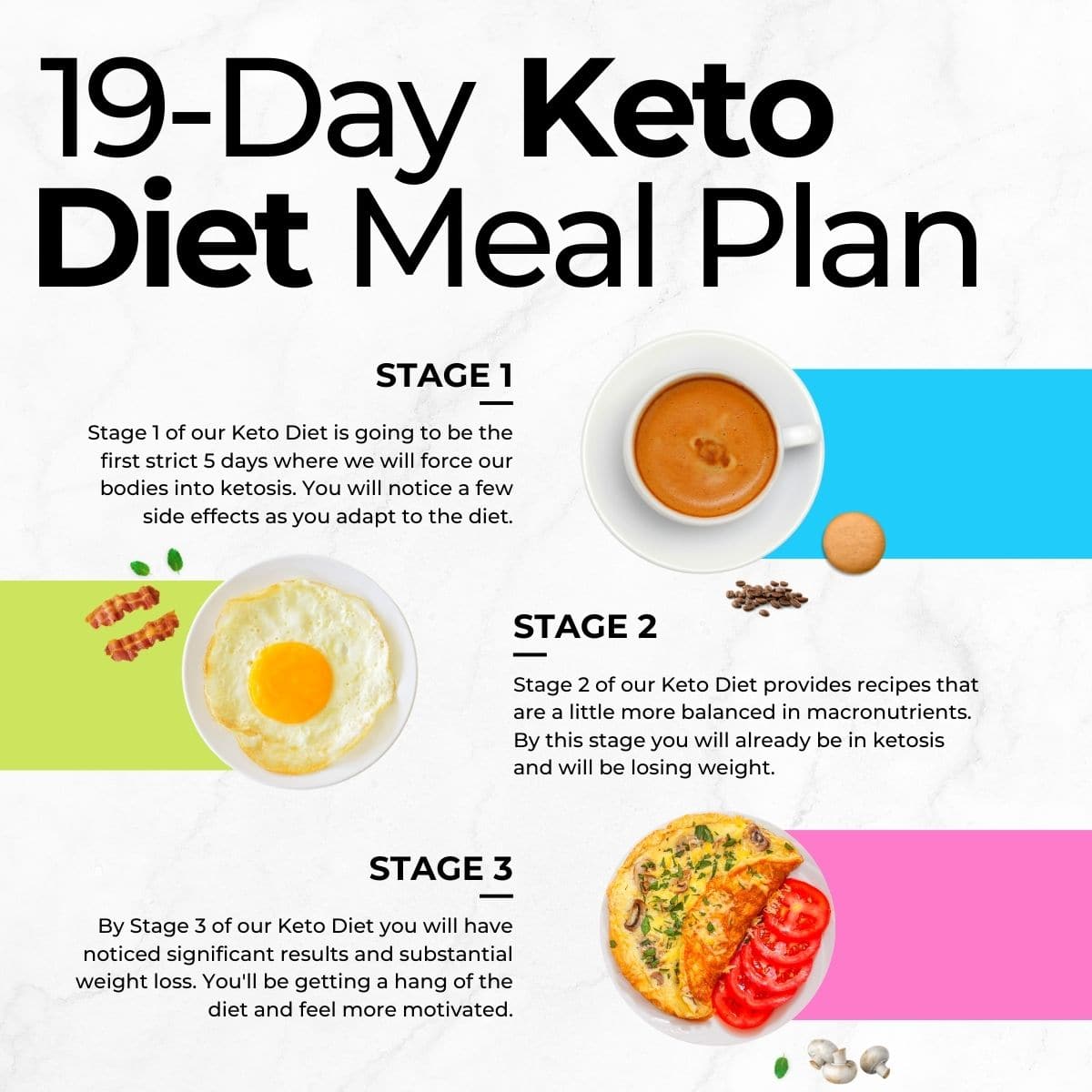
Hi Jennifer. My name is Linda. I have been trying different Keto sites and none have seemed to help me. However, your approach seems simple and encouraging. Everything I read about keto I like. I just haven’t been able to master it. Perhaps with your guidance, I can have success. I hope so.
Hi Jennifer, Your keto recipes and meal plan are great. I've never been on keto for long. I gave up last time and didn't stick to it. This time I'm gonna stick with it. I have more time to cook and find the right things. I just wanted to know if in the receipes you could put in substitutions, say if we didn't have it or couldn't find. That would be a great help. Thanks.
Hi Karen! Thanks for the kind words. Yes, I am working on adding in substitutes for the recipes. You can also do a quick google search to check for alternatives for any ingredients you want to swap in the meantime 🙂
Hi Jennifer. I was wondering if you need to follow the first 5 day meal plan exactly or can you substitute other food choices from your recipes?
Hi Vicki!
You don't need to follow the first 5 days exactly. Just pick the meals that will work for you.
I was wondering if having sugar was still okay on keto? I thought you were not suppose to have any, and the recipes I was looking up on here all do so far.
Hi Carrie!
You definitely want to avoid sugar on keto or any low-carb diet. All our recipes use sugar-free sweetener substitutes like Erythritol, monk fruit, stevia, allulose, etc.
These recipes look delicious. I printed the 7 day meal plan and recipes. I just wanted to mention that the ingredient list for the raspberry cheesecake bites is incorrect. (Has ingredients from the peanut butter cookies). Thanks for this!
Hi Tonya!
Thank you so much for pointing that out. I've gone ahead and updated the meal plan 🙂
Thanks for Providing Valuable information!